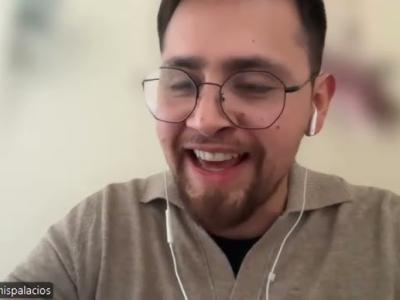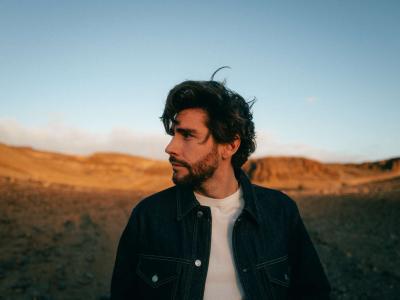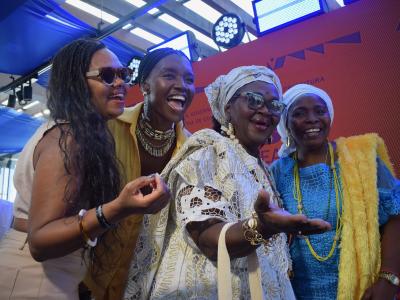Director Lali Houghton has brought out an impressive documentary study: “The Dancer Thieves” for the “Witness” programme at Al- Jazeera. When thinking of Burkina Faso, most westerners imagine a very poor landlocked West African country overrun by rebel groups with little hope of redemption. Nevertheless, there is a rich cultural legacy, largely left by the former revolutionary and president Thomas Sankara, who was a profound inspiration for the country, until his assassination in 1987. He encouraged people to be self- reliant and aim to develop their own skills and businesses rather than expect everything to come from the outside. Sankara typically rejected foreign aid, nationalized the mineral resources and worked on developing agricultural self- sufficiency. He wanted to create a revolution aimed at “restoring the dignity of the Burkinabe people”. As a result, despite his untimely death, there has been progress in some areas, like the Ouagagougou Film festival (FeSPACO) that has gained in importance, as has the architecture, music and dance of the area.
Lali Houghton chose to focus on the amazing story of world-famous dancer and choreographer Aguibou Bougobali Sanou, known as Bouba, who believes in the life-giving inspiration of dance, as well as in a more progressive Burkinabé image. Bouba decides to set himself an impressive challenge: to bring dance into his hometown prison at Bobo-Dioulasso and put on a performance, hopefully outside the prison walls. It is no coincidence that this site was picked. Bobo-Dioulasso is the country’s second largest city and hosts West Africa's second largest dance festival called “In- Out”, organized by Bouba himself and his dance company Tamadia.

Bouba and his prison dance troupe
The result is a moving documentary: “The Dancer Thieves: A second Chance for Prisoners in Burkina Faso”. The skills that the prisoners absorb from this project help them to envisage a future once their sentences have finished. Above all, it lifts their spirits and gives them hope to rise above the dire conditions in the prison, which is grossly overcrowded, with prisoners having to sleep in shifts or sleeping on bathroom floors. There is also the strong likelihood that prisoners become permanently estranged from families that have disowned them and some even wait, interminably, even years, for their court hearings to take place.
Not knowing the reaction the project would provoke from the authorities, nor how the prisoners themselves would respond, this was a real journey into the unknown. However, the prisoners themselves proved the point by developing a strong camaraderie and relishing the opportunity to connect with their own humanity and natural abilities.

Individually, the prisoners learn to express their sorrows and hopes. Gradually, we see them open up as human beings through this art and it is astonishing to see how they connect with their deepest thoughts and sense of humanity and love, to the point of tears. The unaffected and spontaneous love and enthusiasm that Bouba brings to the project inspires them all, as some prisoners play the drums and create music so that their fellow prisoners can move and dance. The first dance group in a prison was created in 2017, also by Bouba with Taiwanese aid. Now, the project is entirely self- funded thank to Bouba and his international workshops and performances around the world.
Bouba encourages them: “Open up as you dance!” One prisoner, Zinaba Mady is deeply moved:
“I may be a criminal, but tomorrow I can change with this dancing. It allows me to reflect and forget the bad memories. Through dance I can become someone.”
The therapeutic effect on these hardened criminals is mesmerizing. Through dance and working together they find a way to express themselves. Will the authorities see this as a positive move for future projects? Bouba has pointed out that none of those who left the prison has re-offended so far. Through expressing their emotions and working with the discipline of dance, the prisoners have learnt to become more self-reliant and positive in their attitudes.
Bouba struggles with the sceptical authorities to obtain the permission to perform outside the prison but despite being promised the possibility, it looks as if all these hopes will disintegrate and Bouba worries about the effect it will have on the morale of his dance troupe.
Al- Jazeera has been finding its feet in the international arena in an impressive way, with its productions gaining international recognition while competing with long-established broadcasters like the BBC. Anglo- Peruvian director Lali Houghton’s feature “Surviving Venezuela: Smuggling Dreams” was shortlisted for the coveted Rory Peck Awards as well as the Foreign Press Association Award considered the 'Oscar' of Journalism. (see https://www.latinolife.co.uk/articles/resilience-venezuela-surviving-ve…)
The Director /Cameraman Lali Houghton studied at Camberwell School of Art and is currently based in Lima, Perú.
Watch film:
https://www.aljazeera.com/…/dancer-thieves-chance-prisoners…















